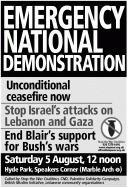'Titanic Express' reviewed in the Independent
Forgiveness is not a popular concept these days. Instead, we seek justice, compensation and, often, revenge when others have done us wrong. These were the immediate goals of Richard Wilson when his 27-year-old sister, Charlotte, was murdered by rebel gunmen in Burundi in December 2000. A VSO worker in neighbouring Rwanda, Charlotte had been travelling on a bus - the Titanic Express of the title - with her Burundian fiancé, Richard Ndereyimana, when the attack took place. As well as the couple, 20 other passengers were robbed, stripped and then killed in cold blood.
Titanic Express begins with an account of Wilson's battle to find out how his sister died, and to bring the perpetrators to justice. Foreign Office officials and the Metropolitan police officers assigned to the case are among the obstacles he has to surmount. More than once, he contemplates commissioning someone with a gun in Burundi to do to Charlotte's killers what they did to her.
As his investigation unfolds, however, Wilson makes contacts with other aid organisations in Burundi, foreign journalists and exiles from its corrupt political system and ethnic tensions between Tutsis and Hutus - the same animosities that caused the genocide in Rwanda in 1995. In the process, he becomes an expert on Burundian politics - a microcosm of the problems that continue to afflict parts of post-colonial Africa. Movingly, he goes beyond a desire for revenge to develop an understanding of why Charlotte's killers did what they did. Yes, they were heartless murderers, but something had happened to make them like that. In violent, hopeless societies, everyone and everything is infected and degraded.
It is not an easy personal journey. Wilson continues to struggle with a more primitive reaction even late in the book, when he meets a BBC World Service journalist from Burundi who has close links with the rebel group behind the attack. But his honesty carries the reader with him. Intimate books charting an individual's quest only work if the author is prepared to show himself, warts and all. This Wilson does unflinchingly.
He also goes beyond the particular to ask broader questions about grief. It is a messy, painful, isolating experience that society today is reluctant to acknowledge or support. In his anguish, Wilson speaks to and for all who cannot easily put loss behind us and get on with life as if nothing has happened.
To find out more about this book go here
Best of the web
- Migliori Siti Di Poker Online
- Casinos Not On Gamstop
- Non Gamstop Casino
- UK Casinos Not On Gamstop
- UK Casinos Not On Gamstop
- UK Casinos Not On Gamstop
- Casino Non Aams Italia
- Meilleur Casino En Ligne
- τα καλυτερα Online Casino
- Casino Not On Gamstop
- UK Online Casinos Not On Gamstop
- Gambling Sites Not On Gamstop
- Casino En Ligne France
- Trusted Non Gamstop Casinos
- UK Casinos Not On Gamstop
- UK Casino Not On Gamstop
- UK Casino Not On Gamstop
- Siti Di Scommesse
- Non Gamstop Casino Sites UK
- Non Gamstop Casino
- Online Casino Nederland
- UK Casino Sites Not On Gamstop
- Lista Casino Non Aams
- UK Online Casinos Not On Gamstop
- Casino Non Aams Sicuri
- Casino Online Non Aams
- Siti Casino Online Non Aams
- Bitcoin Casino
- Meilleur Site Casino En Ligne Belgique
- Meilleur Casino En Ligne
- Paris Sportif Ufc Mma
- Meilleur Casino En Ligne 2026
- Meilleur Casino En Ligne
- Meilleur Casino En Ligne
- Free Spin Senza Deposito Immediato
- Free Spin Gratis Senza Deposito
- Nuovi Casino Online
- Casino Online Sicuri
- Best Crypto Casino
- Casino Online Non Aams

